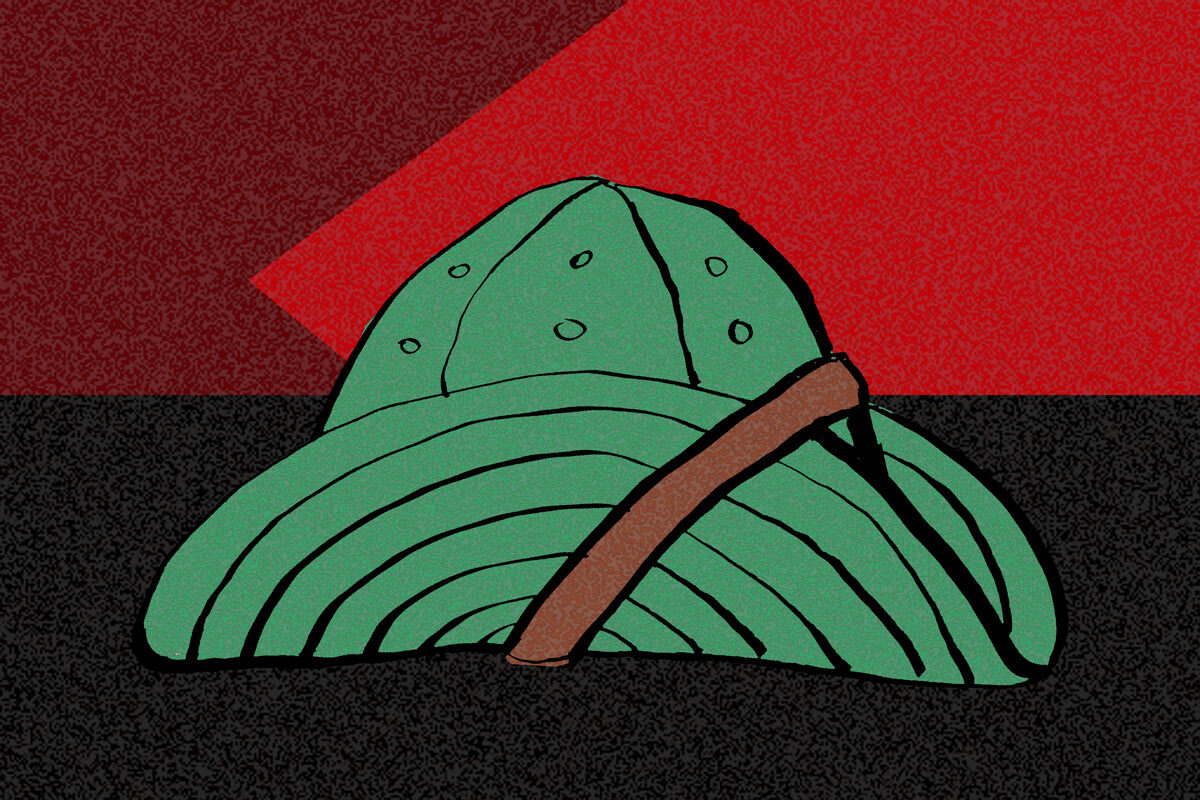In a field located in a rural area of Jinotega, a department in northern Nicaragua, a group of ten state employees from different government institutions crawl through the mud. They crawl two meters, simulating a “pursuit.” “Come on, come on, hurry up… we need to capture the terrorists,” says one of the trainers, dressed in a National Police uniform.
Among the group of employees is Beatriz, a woman in her thirties, who begs to be excused from the mud drill. Her reason: since childhood, she has suffered from skin issues and fears that the mud will cause further damage. Her plea, however, falls on deaf ears as the commander leading the training ignores her. Crying, the young woman crawled several times while the officer mocked her for lacking “character” and “discipline.”
“It’s the worst humiliation I’ve ever experienced. That man abused me physically and psychologically,” Beatriz recounts over the phone. She is now a former employee of the Sandinista government and agreed to share her experience of the new “mandatory military service” under the Nicaraguan regime.
The “new mandatory military service,” as described by former state workers who spoke to DIVERGENTES under anonymity, refers to the training the Sandinista regime began in mid-2018, just before the “clean-up operations” carried out by the dictatorship in cities that opposed the government. These operations left over 350 people dead, according to reports by national and international human rights organizations.
From paramilitary “volunteer police” to the new mandatory military service
A source connected to the Ministry of the Interior (Mint) explained that, at that time, only civilians that didn’t work for the state were summoned to these camps. These civilians, whom Daniel Ortega referred to as “volunteer police,” were essentially paramilitaries used by the regime for the clean-up operations, and they were trained by police officers.
However, as the dictatorship solidified its grip on power and due to desertions from the police and the “volunteer police,” the order was given to require state employees to participate in these trainings, leaving no room for objection.
Since 2021, the police, government authorities, and Sandinista supporters have been instructed that at any time, public employees must train to be “prepared against coup attempts.”
“The decision to subject public workers to weeks of police and military training is related to two key points: first, the regime’s paranoia over an almost impossible armed opposition attack. Second, testing the loyalty of its followers in the face of any attack,” explained a security expert with extensive knowledge of police and military matters.
In 2023 and 2024, according to sources from the Ministry of the Interior and the consulted security expert, the Sandinista regime has ordered more training camps for state employees across different cities. These camps are usually located near police stations, with plenty of space in forested areas, allowing civilians to undergo survival tests similar to those during the 1980s civil war between the Sandinistas and the Contra. The key difference is that right now there is no armed conflict with any political group.
They must complete the training in order to keep their jobs
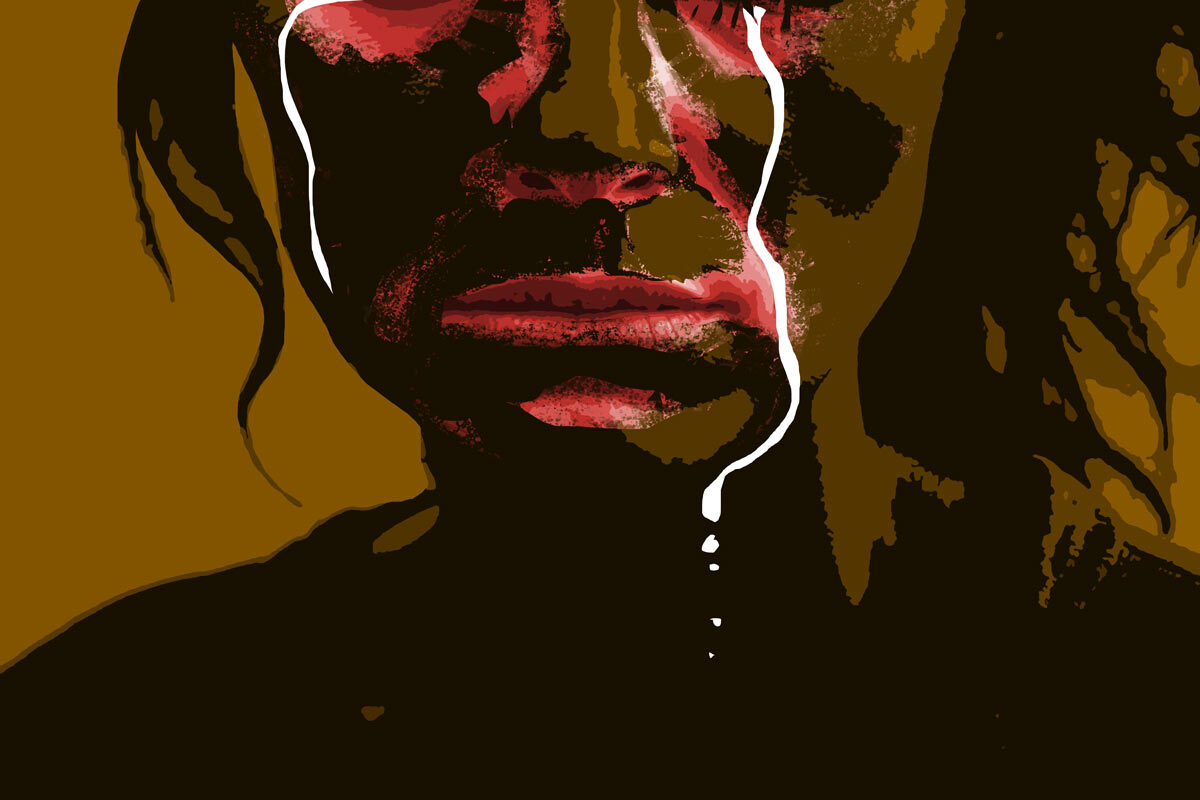
When Beatriz’s boss informed her that she had to attend a week-long police training camp, she requested an exception due to her physical condition, which made long walks difficult, and her concern about exposing her skin to several days without proper hygiene. Despite presenting medical records, her superior explained that it was an order from “above,” and if she wanted to keep her job, she had to go.
“I remember we were called into the office and told we’d be going for a week, no cell phones allowed, and to tell our families it was important training. We were threatened with prison if we said anything. I felt like I was going to war, that’s how it felt, and what the police officers said made it seem that way,” Beatriz recounts.
Together with her coworkers, Beatriz arrived at a camp in Jinotega, which she recognized as belonging to the police. However, not only were there police officers present, but also members of the military. All were locals, but with “evil faces.” They were all repeatedly threatened with prison if they disclosed anything about what they were going to experience that week.
“We never slept, we just ‘rested.’ We were outdoors fighting off mosquitoes, doing our business in the woods, and drinking water that may not have been drinkable. We were only given rice and bananas to eat. During the day, we went through these humiliating drills because when someone said ‘I can’t,’ they would insult you and mock you to make you complete the task. To me, it was cruelty,” the young woman explains.
At night, Beatriz recounts, the trainers “detonated a bomb” and ordered them to find the explosion site because “the enemy” was there. Everyone would rush into the forest, carrying a piece of wood that simulated a machine gun, and they wouldn’t return to the meeting point until they had “eliminated the enemy.”
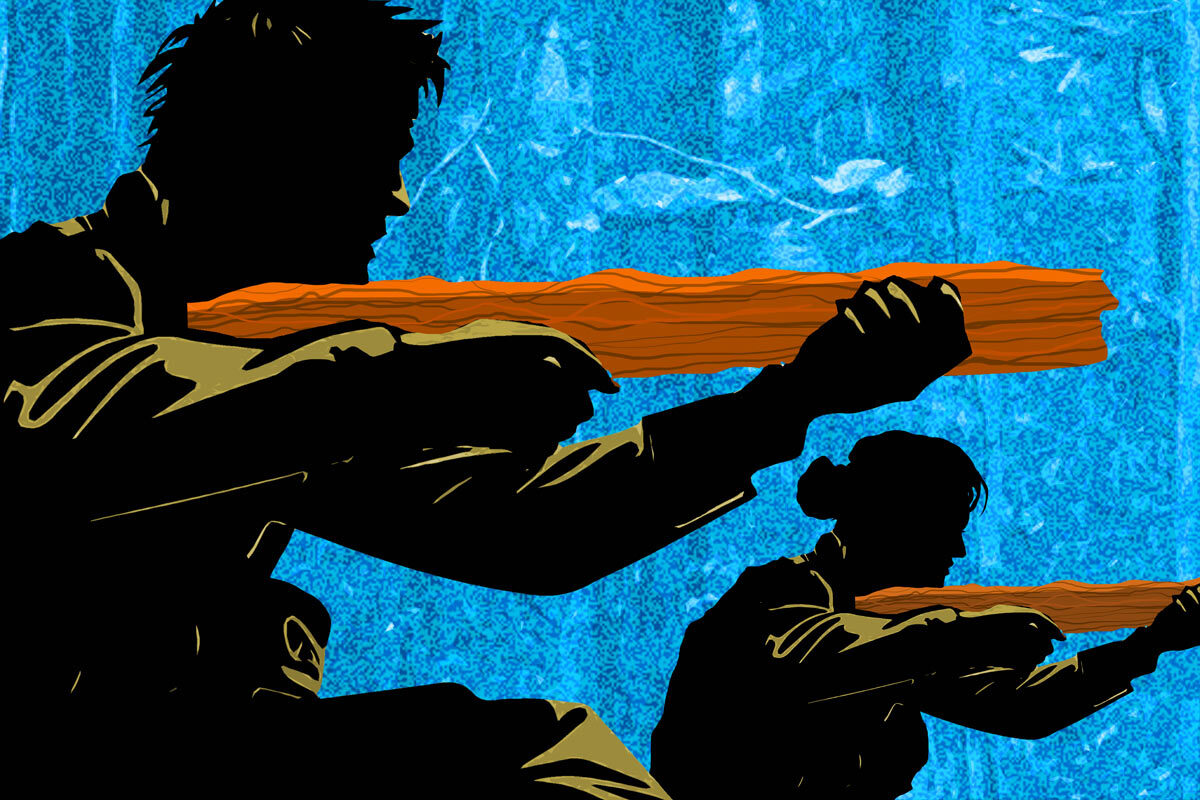
“It felt like a children’s game but with war trauma. When we got to where this so-called ‘enemy’ was, which was no one, they would tell us to ‘fire,’ and we would point our wooden guns and make shooting noises: ‘Bang, bang, bang,’ and then we’d head back to camp in the middle of the night. It was madness,” Beatriz says.
The day she was forced to crawl through the mud she realized she wasn’t going to stay in the government institution for a paycheck. Seeing her dirty hands and feeling the filth on her face, she realized she would never have peace in Nicaragua.
“It was a sad and cruel scene. I was asking for help, I felt like the mud was burning me. Some may say I’m a ‘crybaby,’ but only someone with trauma from a chronic illness could understand me. That’s why I left the country, with support from my parents and my partner. Going back, while those lunatics are still in power, is not an option,” Beatriz says.
The recruitment is mandatory and without exceptions
State employees and former government workers interviewed by DIVERGENTES for this report agreed that the order to attend the training camps could not be challenged by anyone, not even the highest authority in the institution. The order, they said, was akin to martial law that had to be followed no matter what.
The source connected to the Ministry explained that while the order came from “above,” the camps were coordinated by the police, political secretaries of the institutions, and sometimes officials from the Ministry of the Interior itself.
The police officers carried out the training in the camps, while the political secretaries of the ministries were responsible for preparing the list of employees who would attend the “new mandatory military service.” If necessary, a Ministry official would also take part in the overall coordination.
“My group was notified three days in advance. They told us we were going for outdoor training and not to bring phones. We also couldn’t tell anyone. But rumors were going around, so we had an idea of what we were getting into,” explains Miguel, another former worker interviewed by DIVERGENTES.
Miguel says that initially, younger people were taken first, followed by older employees. However, by the end of last year, in Managua, where he worked, age was no longer considered for the training. Neither was the employee’s gender.
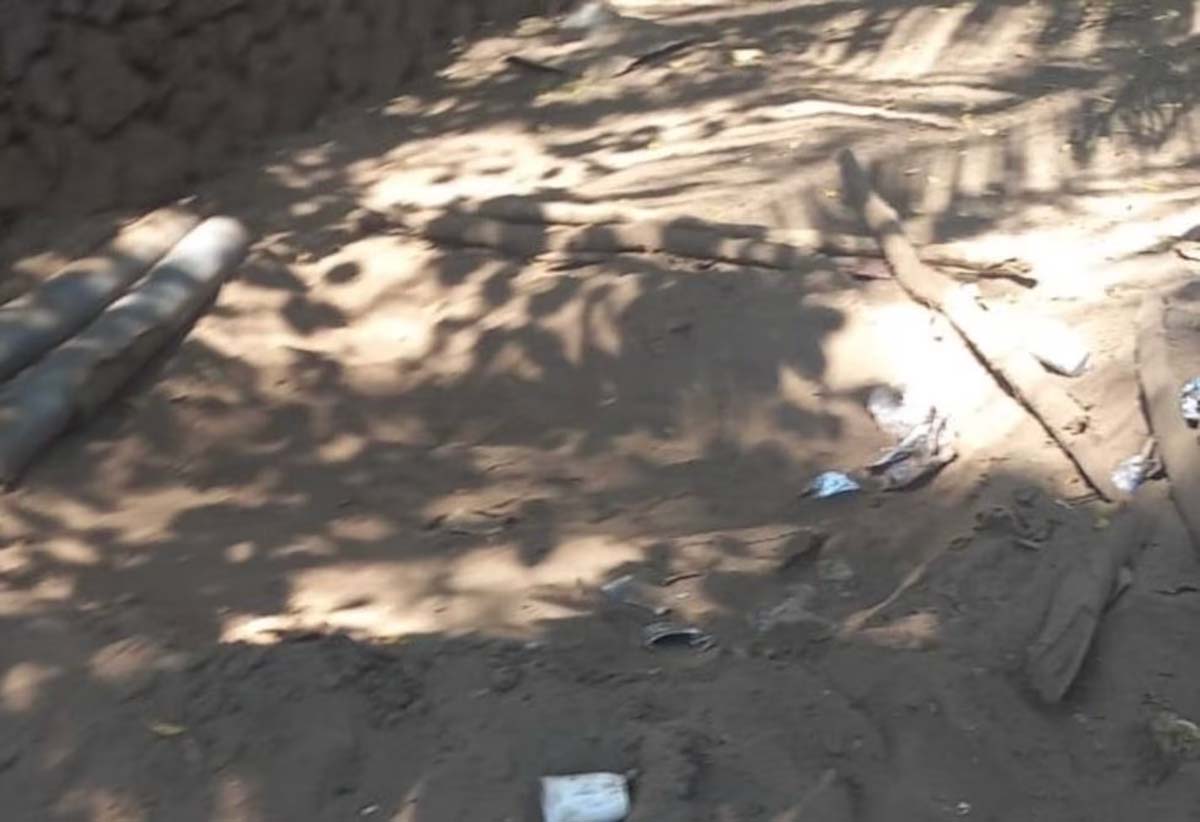
Once at the camp, the police officers were in charge of explaining to each state employee what they would be doing throughout the week. The mission, according to the “trainers,” was to finish the week with ample knowledge to be prepared for any “terrorist rebellion.”
“The younger ones can handle the training because they have more energy. The older ones can’t. We don’t have the same strength, and we certainly don’t entertain the idea of going into the woods to find enemies. Their sick ideas are wearing people down. This recruitment is just one more of their craziness,” says Miguel, speaking over the phone from Mexico. Like Beatriz, he decided to leave the country after being subjected to the training.
After spending seven days in training, the state workers are returned to the office they left at the beginning of the week, and they are reminded once again not to say a word. Political secretaries take note of each “recruit’s” performance, and those who performed best are listed under the “competent” category.
“Then the following week, another group goes out. The order is to train everyone, men or women, for a ‘war’ that only exists in these people’s heads,” referring to Daniel Ortega and Rosario Murillo, Miguel emphasizes.
Training during the day and searching for enemies at night
Raúl, who has a mobility impairment, was told by his boss that he had to attend the camp no matter what. His difficulty in moving was not considered. This man, with sun-darkened skin and a weary look, spent the nights leading up to the training worried about his health.
“I have this problem; I can’t move well. Of course, I was worried because I’d heard stories from colleagues who suffered with all those tests they put them through. These people don’t mess around,” Raúl says over the phone from a Central American country. “I was so traumatized that I asked my sister to help me get out of there,” he confessed.
Like the other interviewed people, Raúl said his boss warned him not to bring a phone or tell his family anything. He was told that the seven days away from his loved ones would go by quickly and that they had nothing to worry about.
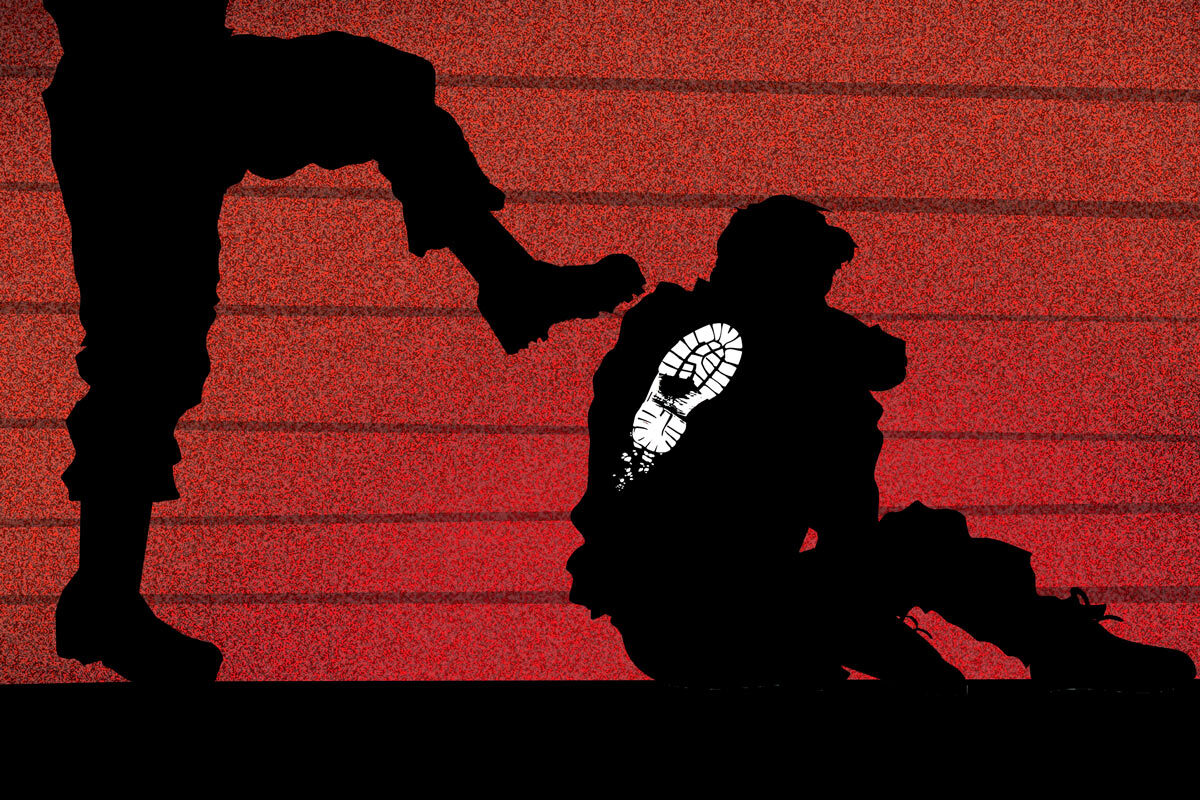
The day they were taken to the camp, located in a department in Nicaragua’s southern Pacific region, Raúl noticed that some colleagues, like him, were afraid. However, another group seemed excited. “They were young people from another municipality who, as far as I understood, had already participated in several camps,” he explains.
The security expert who spoke with DIVERGENTES explained that, as in all groups, there are fanatics who enjoy these kinds of activities, and most of them were young people just starting their state careers.
“It’s a minority group, but it exists. Their main motivation is ‘not working’ and the curiosity to go through that experience their grandparents or great-grandparents told them about the war in the ’80s. It’s part of the trauma those years left on Nicaraguan society,” he says.
Although they were told to bring hammocks to “sleep,” Raúl explained that sleep was the last thing they did. During the day, they were subjected to tests like crawling through mud or jumping over obstacles, and at night, they had to stay alert to patrol and guard the camp from the enemy.
“One night I was exhausted, dead tired, and they made us go out to deactivate a bomb. I asked the trainer to let me stay behind because I needed to go to the bathroom. He said yes, and I stayed, but I fell asleep in the middle of the forest because I just couldn’t take it anymore,” Raúl recounts.
Seven days of training, 15 pounds lighter
The bomb-search mission turned into a “let’s find Raúl” mission. His colleagues and the officer leading the “mission” walked for several minutes until they found him.
“I told the boss something had bitten me, which is why I had stayed behind, but he didn’t believe me. He kicked me—not too hard, I won’t say that—but he did kick me. Then he scolded me, and we continued walking back to the camp with the group,” says the man in his forties.
During the seven days Raúl spent in the “new military service,” he ate poorly. He mostly consumed rice and, only once, a canned meal shared among everyone. He said he lost about 15 pounds and noticed his stool changed color in the last few days.
“They made us do our business in the woods. It’s not that I’m squeamish, but it’s inhumane to force people to do that when there are proper facilities. And for the police, it was completely normal. We were like dogs, covering the mess with dirt,” he explains.
The day they returned home, Raúl’s family asked him about the infamous training. He preferred to remain silent and only told them about it once he was safe, along with his family, in another country, far from the “madness” of the Sandinista Front, as he calls it, and the country where he was born.
The regime’s paranoia over a new citizen uprising
The order issued from “El Carmen” to force state workers to participate in military-police training camps for a week stems from an idea—that’s crazy, according to two sources consulted by DIVERGENTES—of a new civil uprising in Nicaragua against the Ortega-Murillo regime.
The source connected to the Ministry and the security expert explained that the notion of a supposed attack on the government has been fed by informants serving the same dictators, who, according to the people interviewd, are mistaken.
“The idea of an uprising has always been there. But the fact that it’s gaining momentum now, six years after the regime decapitated the opposition and exiled its critics, is an exaggeration. I believe the dictators take these leaks seriously because it’s the same thing they were told when they faced the Contra in the ‘80s, but these are clearly different contexts,” says the security expert.
Desertions drained the regime’s Police Force
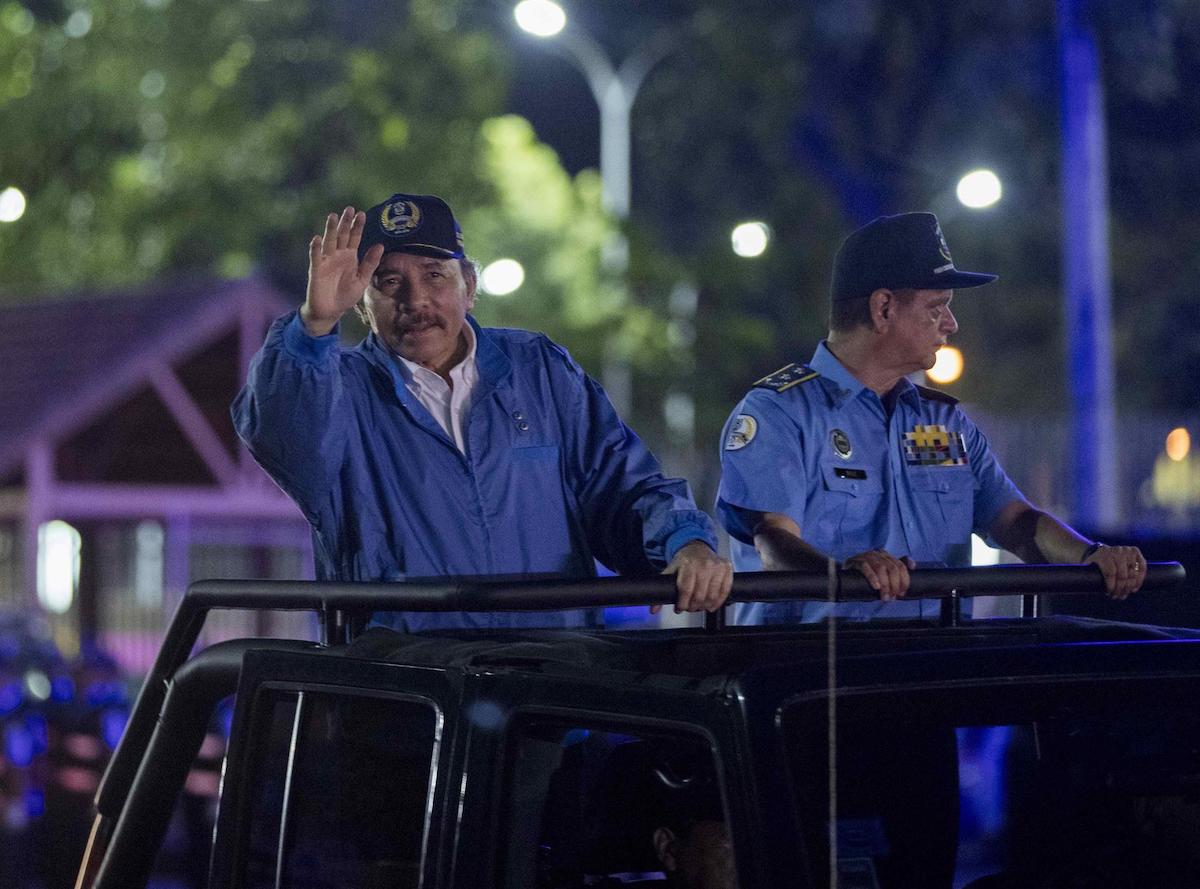
The regime’s decision to train “new soldiers” aims to fill the gaps in the police forces left by desertions, the numbers of which are unknown since the institution stopped publishing its statistical reports.
The problem, according to the source connected to the Ministry, is that public employees are resigning and have no desire to face a potential new uprising.
“What they also want from ‘El Carmen’ is to purge the state and identify which officials would actually be willing to fight in a war—though I doubt one will happen—for their dictatorship. It’s a deeply ideological issue for them, where loyalty to the Sandinista regime should prevail,” the security expert states.
For both sources, this obligation imposed by the regime on public employees, instead of bolstering their armed groups, is driving state workers to quit their jobs and seek to start over in other countries, free from the pressure of this type of “military service,” which instills fear and anxiety in them and their families.
“I’ve come across situations where former employees have left the country for fear of being chosen to ‘defend the party.’ Many heads of families don’t even resign; they just leave the country without telling their bosses in the state,” the security expert notes.
“Of course, there are others who have no way of leaving, so they have to endure this blatant violation of their rights. Honestly, I don’t think the regime is achieving the results it expects—it doesn’t seem to be successful,” he adds.
Raúl, Miguel, and Beatriz are among the public employees who have fled the country out of fear of continuing in these training camps. All three left with their immediate family and agreed to share their stories on the condition of anonymity to protect the rest of their family, who, although not state employees, remain in the country.
“My immediate boss went to the camps three times. He got fed up and one day left the country. A few months ago, I talked to him, and he said others from the ministry also left. Nobody wants to stay where you’re forced to do something that doesn’t make sense,” Miguel says.
The latest case: Those who aren’t state employees but are linked to the government
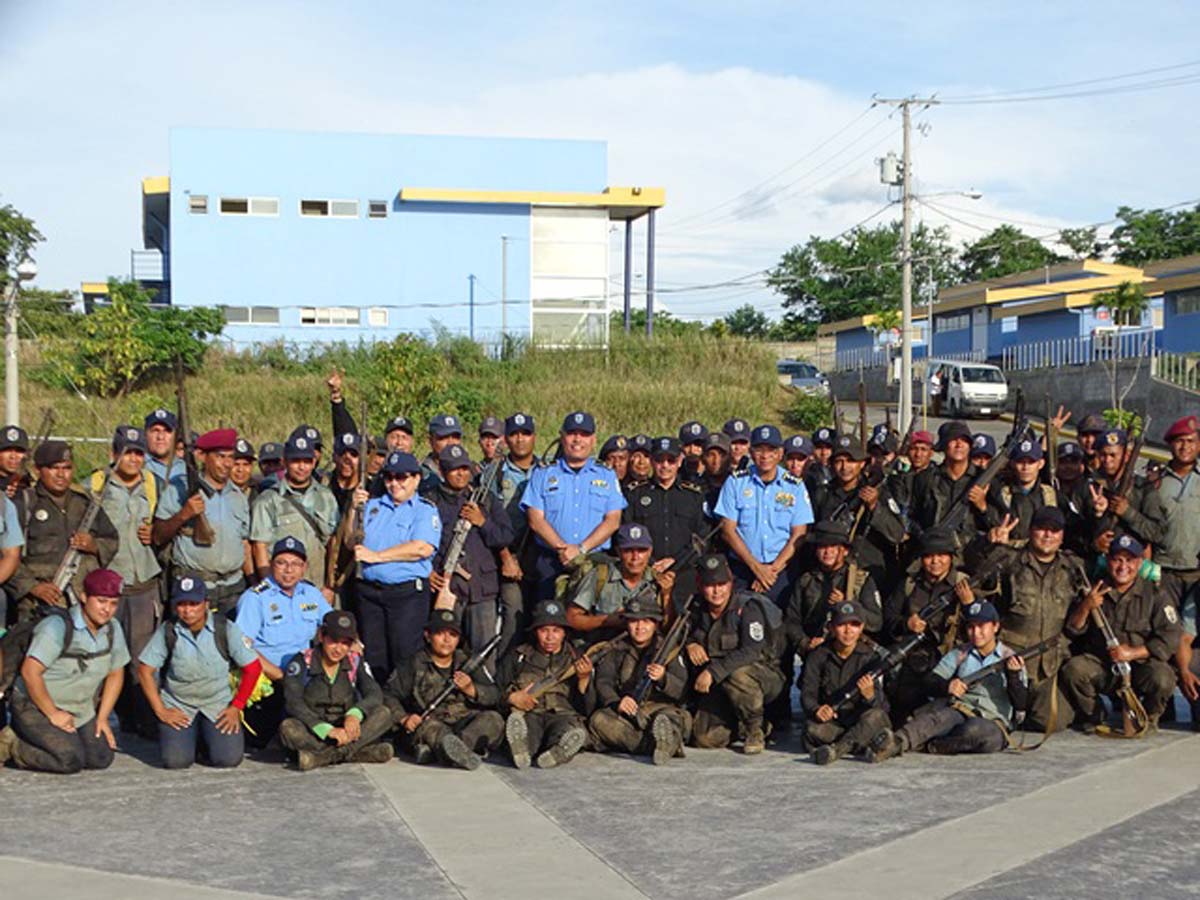
Gonzalo doesn’t work for the state of Nicaragua. He says he has never received money from a public institution. His “adventures” in the workforce have been more connected to volunteering and carrying out specific activities for non-governmental organizations.
“I don’t work for the state, but the organization I’m currently with has very close ties to the government. But they don’t pay us, they don’t give us a place to stay, nothing like that. But let’s say we’re ‘hand in hand’ with them because, in the end, they’re the ones who grant the operation permits,” he explains.
Even though he doesn’t receive a salary from any public institution and his boss is neither a minister nor the director of any national entity, the fact that his organization is closely linked to the government led him to experience “military service” for a week.
One Sunday in May 2024, Gonzalo received a call from a state official he was in contact with because that official oversees the work of the organization he works for. This person told him that on Monday—the next day—there would be an important training that all government collaborators had to attend. “I didn’t notice anything suspicious. I thought it would be training at a hotel, just like that,” he recounts.
On Monday morning, they informed him that there would indeed be training, but it was different from the ones in the past. They explained that he had to attend a training camp and that at the end of it, they would give him a basket of basic food products.
“They didn’t force me, but the tension and the way they said it made me understand that I had to go no matter what. My colleagues from other organizations felt the same way. We couldn’t say no. So, we all went to the training,” he explains.
The camp took place on a National Police property. Gonzalo asked for details to be omitted for safety reasons. In addition to going through the same tests and “humiliations” as the other people interviewed in this report, they were assured at the end of the training that they were now prepared for any enemy invasion.
Gonzalo didn’t understand it. At that moment, after six days in the forest, the only thing he wanted was to go home and sleep in his bed. During the training, he ate poorly, couldn’t sleep because of the constant calls from the police to go “on patrol,” and couldn’t bathe properly. His family, he said, was worried about his well-being because no one knew where he was during those days.
Once home, the only person he told about his experience was his father. “I didn’t live through the military service up close, but after talking to him, I understood that it was more or less the same. The only difference is that I didn’t carry a weapon, just a wooden stick that, according to them, was our AK-47,” he said.Gonzalo received his basic food basket at the end of the camp. However, the rice, oil, and other basic grains weren’t worth what he had to endure during the seven days of training. He has seriously considered leaving the organization that has close ties to the Sandinista regime because he doesn’t want to go through it again—or worse, end up as cannon fodder in a potential “war.”



